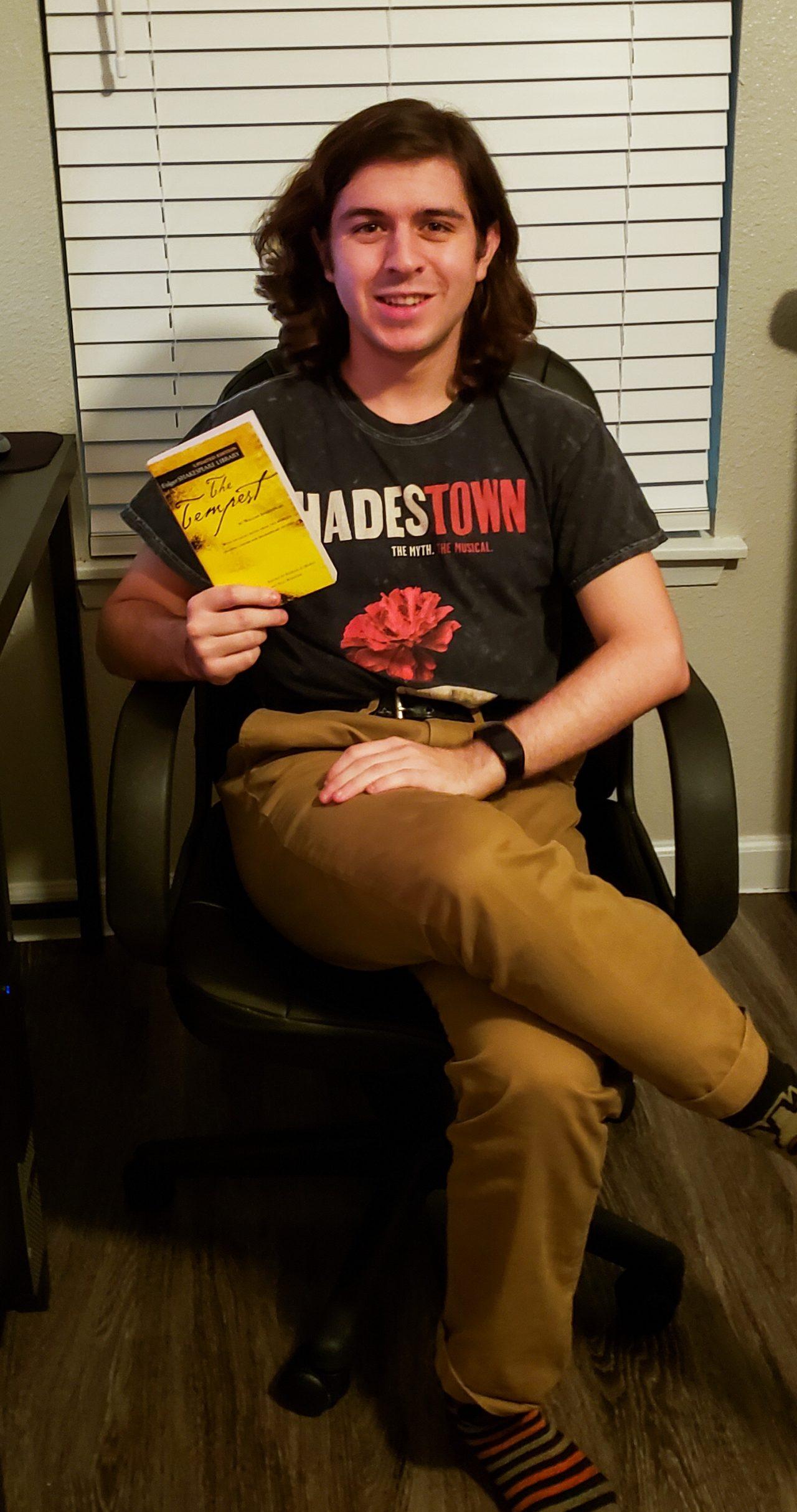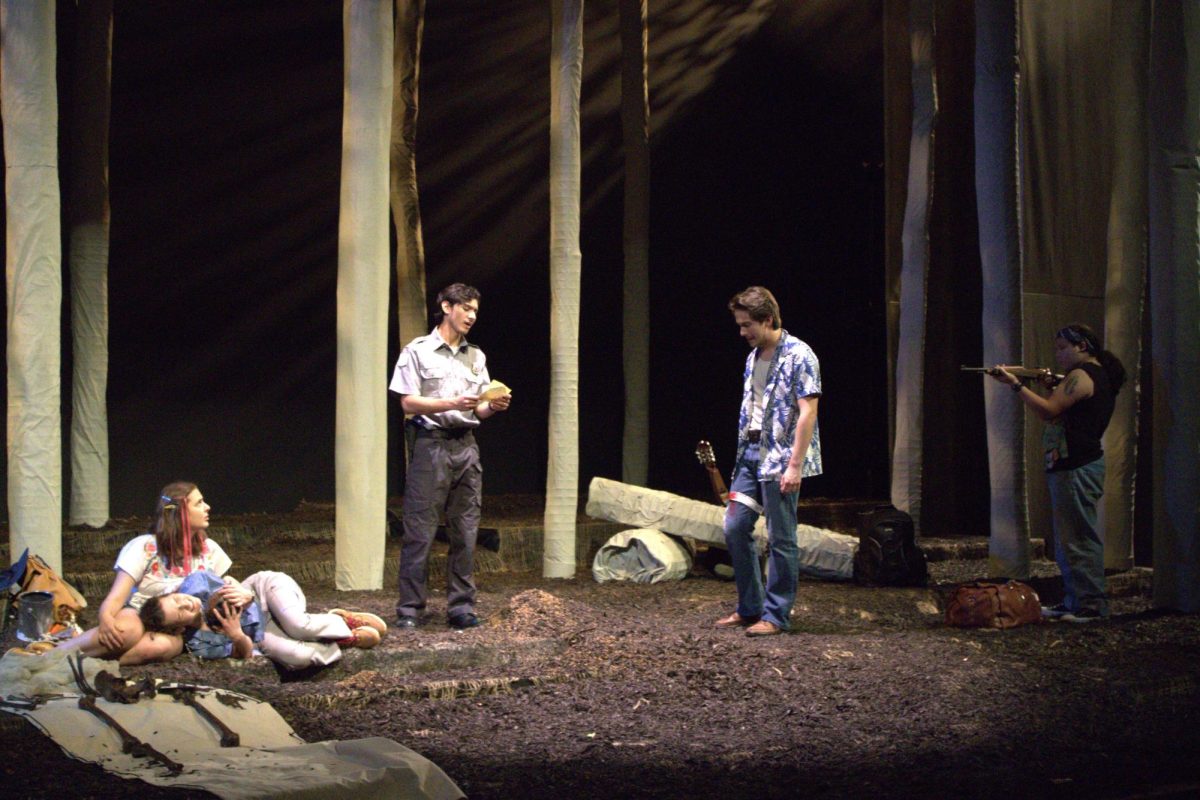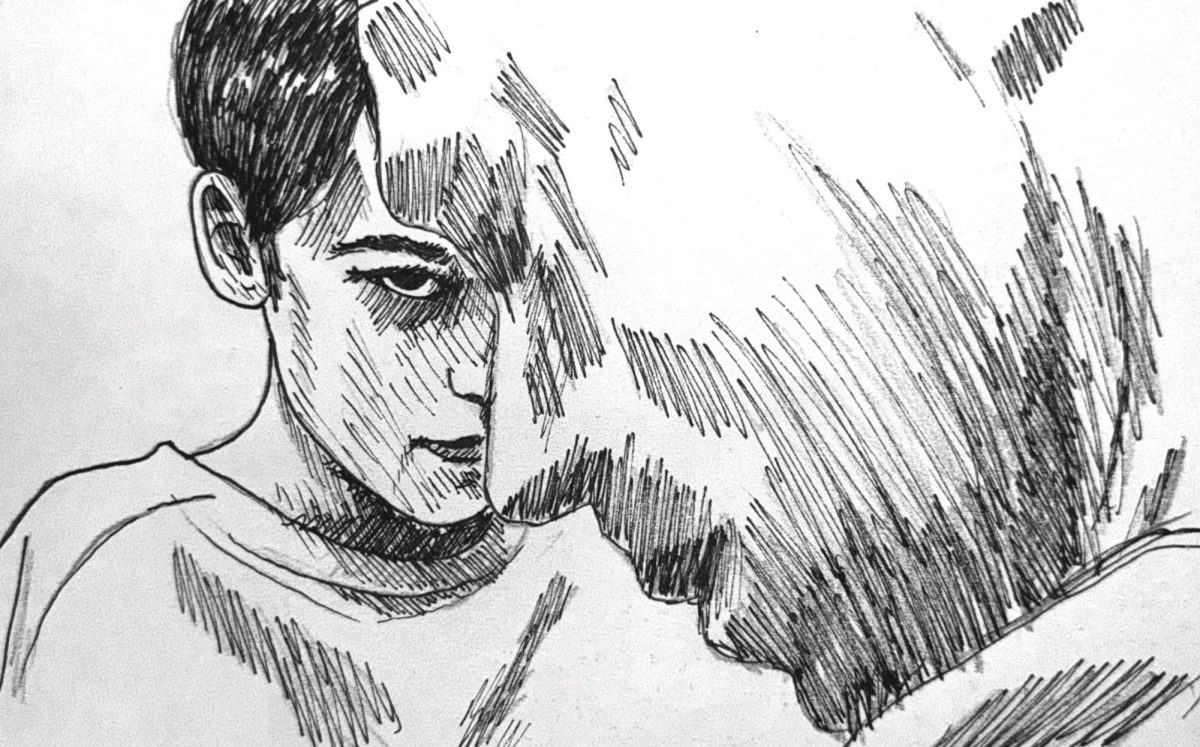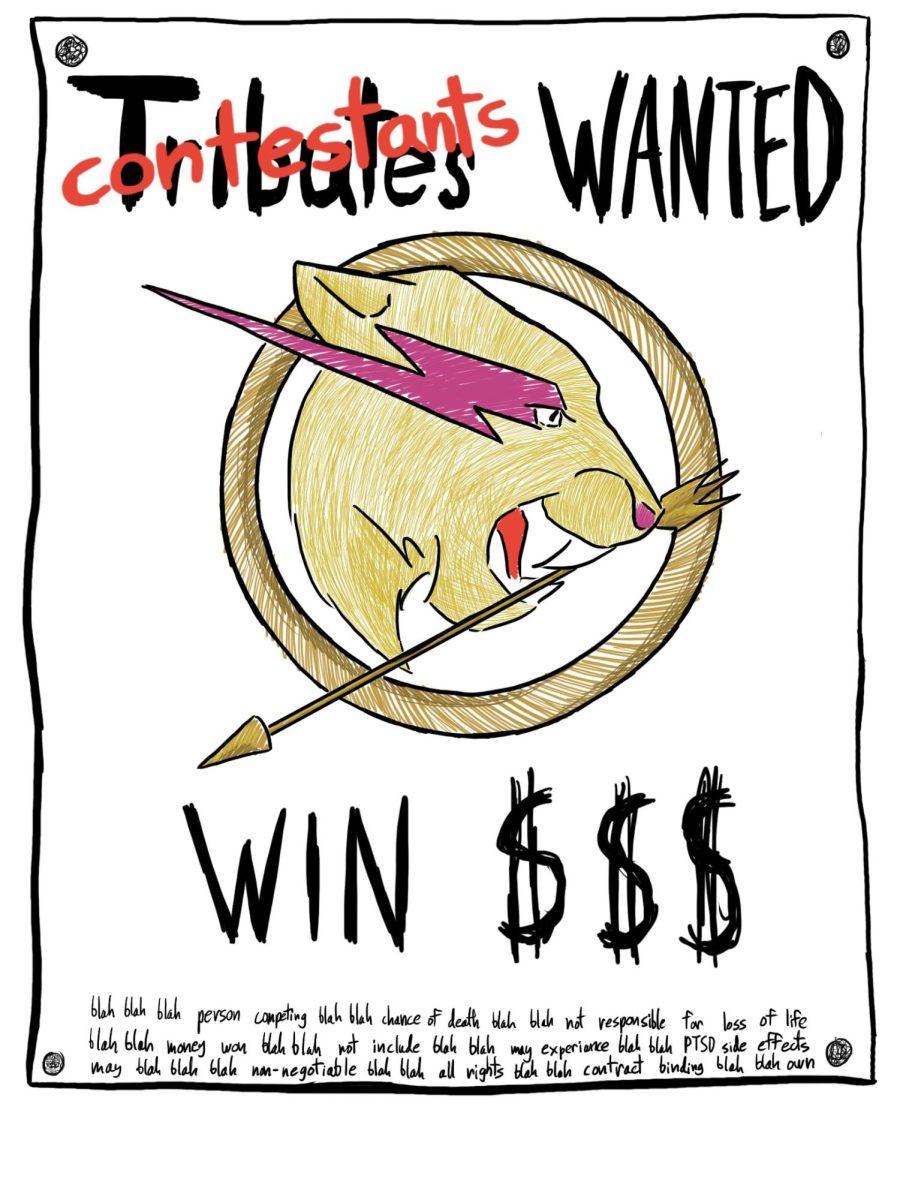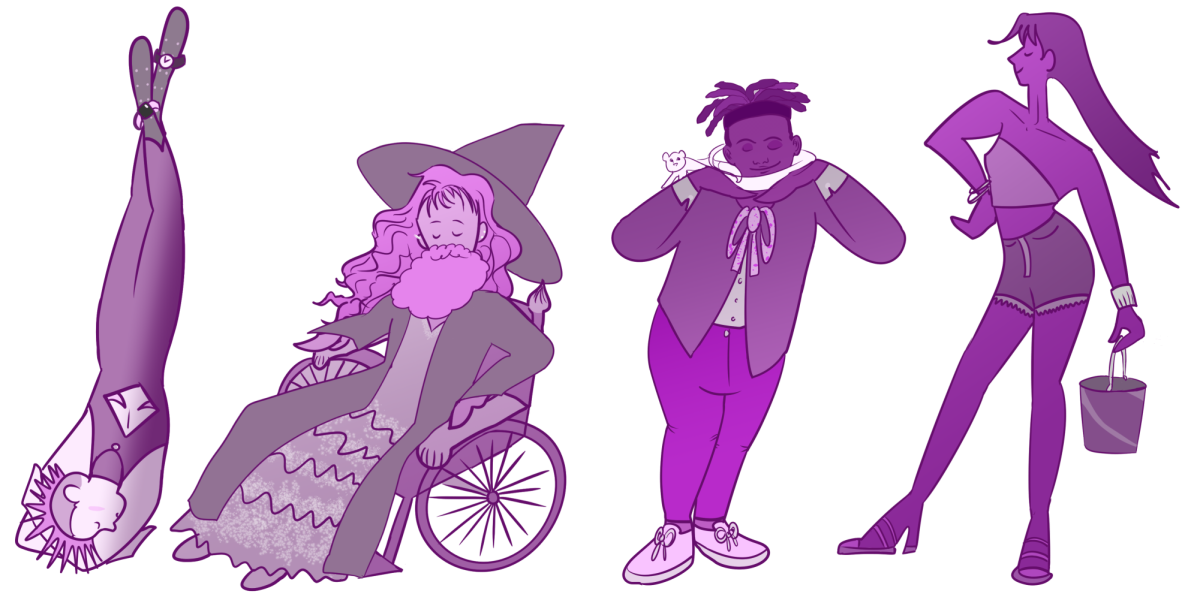While quarantine canceled most of the world’s plans, it provided some with the opportunity to embark on new creative journeys. I virtually met with junior Anthony Tresca to discuss how quarantine helped give him the chance to finally make his hopes a reality.
How did this project come about?
Well, it really started as a joke. I kept telling people that I was going to start a club where we just read and talked about Shakespeare, and then, during quarantine, I finally got bored enough to plan it all out and actually do it. I brought it up at one of the Trinity University Players (TUPS) Zoom officer meetings and then attached two other officers (Rafaela Brenner and Scarlett Patino) to help me execute it and work out some more logistics stuff. I am so excited to finally have it be an actual thing.
How did you choose the texts?
Well, we (being the three officers working on this project) only choose the first text, The Tempest. That is the play we are currently working on right now. We choose it because it is about characters who have been living in isolation for a long time on an island, and we felt those themes might be relevant because of what is going on in the world. Similarly, there are a lot of really interesting conversations to be had about colonization, prejudice and oppresion that we want to highlight and call attention to though our reading of the play. We only chose this first play because we wanted out other two plays that we read through this semester to be chosen by our members. We actually chose our next play at our meeting today; beginning on October 4, we are going to be reading through/discussing A Midsummer Night’s Dream.
Why three texts as opposed to any other?
We chose to look at three texts because we wanted to spend five weeks on each text, and so (because of the school’s calendar) that works out to us being able to fit in about fifteen meetings, and that forces us to do three plays.
What are some things you’ve learned from these last two Sunday meetings?
At our first meeting, we heard from Dr. Nathan Stith, who is a classically trained Shakespearean actor. He discussed his first exposure to Shakespeare, the four plays he performed in college, his time being a professional Shakespearean actor and the difference between performing and teaching Shakespeare, so, in order to make it more accessible to everyone, we give a whole bunch of technical information and provide frameworks for how to think about these plays so that we can all be on the same page. Hopefully, this serves to make Shakespeare more accessible to everyone.
This week’s meeting, we read through Act I, and it just struck me how relevant Shakespeare’s work is today. The language is so beautiful, and the performers really gave it their all. It was really heartwarming to listen to all these people take time out of their days to read/discuss Shakespeare with another. Similarly, the group really clicked, and it was absolutely delightful to see people playing with Shakespeare’s words and really having fun trying to put their own spin on the Bard’s famous lines.
What would you say to those interested in attending who may not be confident in their Shakespeare fluency?
I would say that we try to do everything we can to make Shakespeare as accessible as possible. We acknowledge that a lot of people’s only exposure to Shakespeare is through reading it in their high school English classes, but Shakespeare was not meant to be read. Shakespeare was meant to be performed, aloud, for and with other people. We have members of all skill levels (some who have been doing Shakespeare for years and some who have never read any Shakespeare before), so I would really encourage everyone to come out and give it a try if they are even remotely interested in Shakespeare. We, unfortunately, cannot take any new members right now (as we have already cast The Tempest and have started reading through it at meetings), but we invite new memebers to attend out meeting on October 4, where we will all be hearing from Shakespearean scholar Dr. Kathryn Vomero Santos and be doing the dramaturgical presentation over A Midsummer Night’s Dream. At that meeting, we will be welcoming new folks into the club so that we can cast them in our Zoom reading of A Midsummer Night’s Dream.

